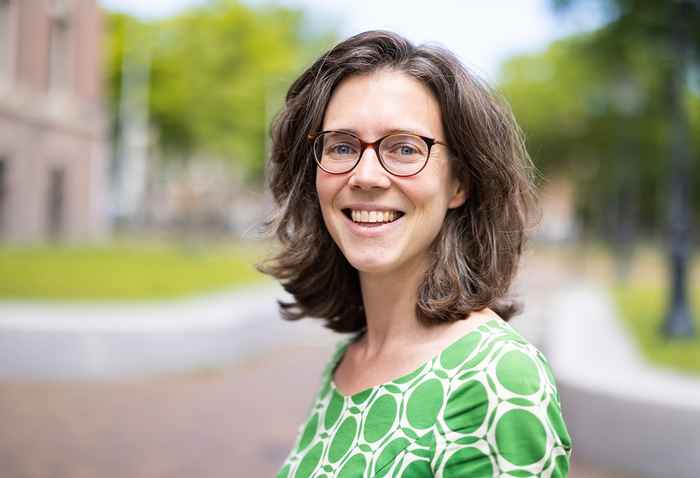Feike Dietz, Professor of Global Dynamics of Dutch Literature
31 August 2022

In her research, Feike Dietz focuses on the relationship between early modern texts, knowledge and reading. ‘I want to understand how people learn through the books that they read, and how they are actually able to acquire the knowledge and skills that are necessary to function in a literate world’, she says. ‘I am especially interested in groups of readers for whom the access to knowledge and books was not matter-of-course.’ For example, she studied the effects of children’s and school books on the literacy of 18th century children and as a NIAS fellow, she researched (together with Nina Geerdink) ideas about knowledge in the case of early modern women’s writing.
In recent years, Dietz has written, among other things, the monograph Lettering Young Readers in the Dutch Enlightenment (Palgrave Macmillan, 2021) and together with Sven Dupré she edited Youthful Minds and Hands: Learning Practical Knowledge in Early Modern Europe, a special issue of Science in Context (Cambridge UP, 2019). ‘A further ambition is to interconnect my focus areas, age and gender, even more strongly: how were books able to help girls to acquire knowledge and identify themselves as ‘experts’?
Children's and girls' books have moved easily across linguistic borders since the 18th century, but at the same time the characters presented are strikingly white and elitist.
The borders of Dutch literature
With the new chair, Dietz will research Dutch literature from a transnational perspective. That approach has been a recurring theme in her research, ever since she worked on her thesis Literaire levensaders: internationale uitwisseling van woord, beeld en religie in de Republiek (Literary lifelines: the international exchange of words, images and religion in the Dutch Republic, Verloren, 2012). ‘At that time, I looked at groups of religious readers, who were more likely to be inspired by the books of like-minded people outside the Dutch Republic than by books published by their dissenting neighbours. This shows the fragmentation of social groups, but also the international character of Dutch literature. That does not stop at national borders – and, in any case, such borders have always shifted throughout history.'
That is why the professor wants to devote attention within this chair to the way in which literature has developed across geographical borders (for example via translations), and to the question of how inclusive the narrative world in Dutch books is. Dietz: ‘These are also extremely relevant questions in view of children's and girls' books: they have moved easily across linguistic borders since the 18th century, but at the same time the characters presented are strikingly white and elitist.’
Dutch literature in society
Feike Dietz was affiliated with Utrecht University until recently as lecturer-researcher in Early Modern Dutch Literature. In recent years, her positions there included project leader (together with Marjo van Koppen) of an interdisciplinary NWO Open Competition Project and programme coordinator of the interdisciplinary Bachelor’s in Language and Culture Studies. Dietz: ‘As a lecturer in an interdisciplinary degree programme, I aimed to make historical texts more relevant to the present-day society: topical issues in the fields of globalisation and inclusion have a long history.’
As an editorial member of LitLab, a digital laboratory for literature education at secondary schools, she is also making research into Dutch literature relevant and accessible to new generations. ‘I conduct research into historical readers, but the ultimate aim is always to contribute to the readers of tomorrow.’